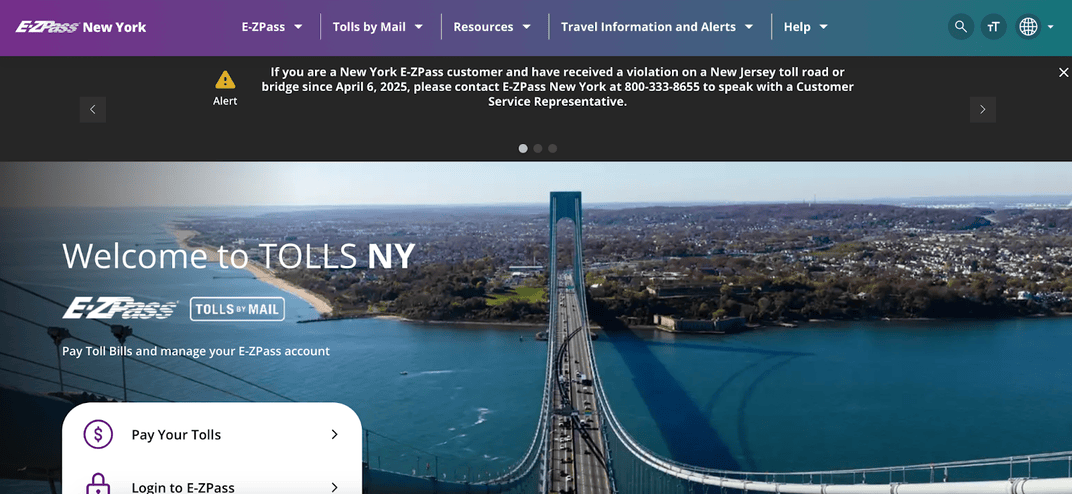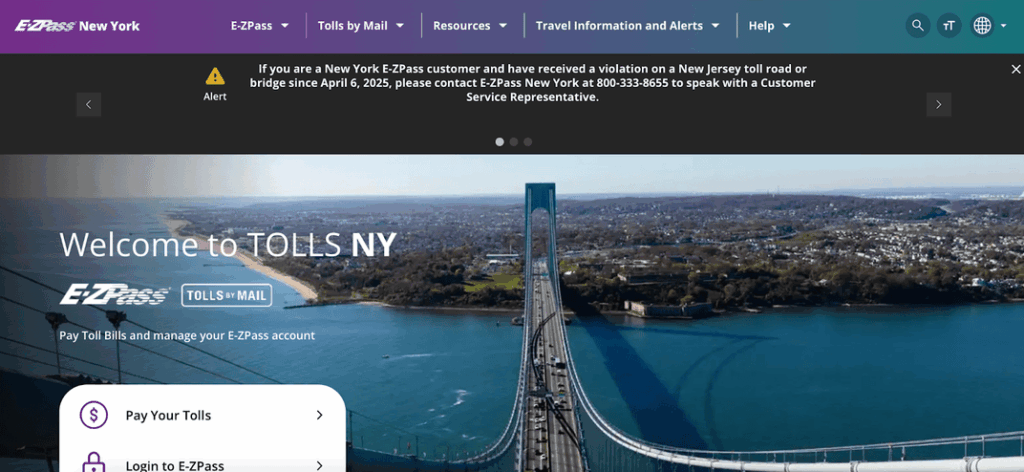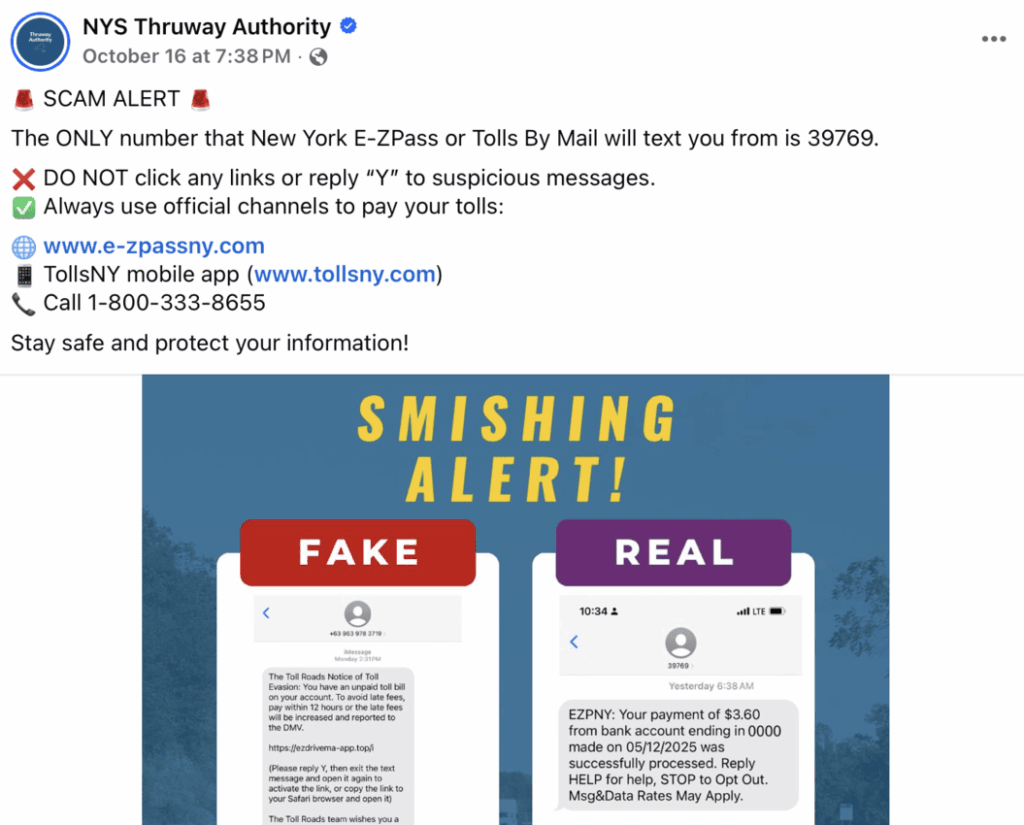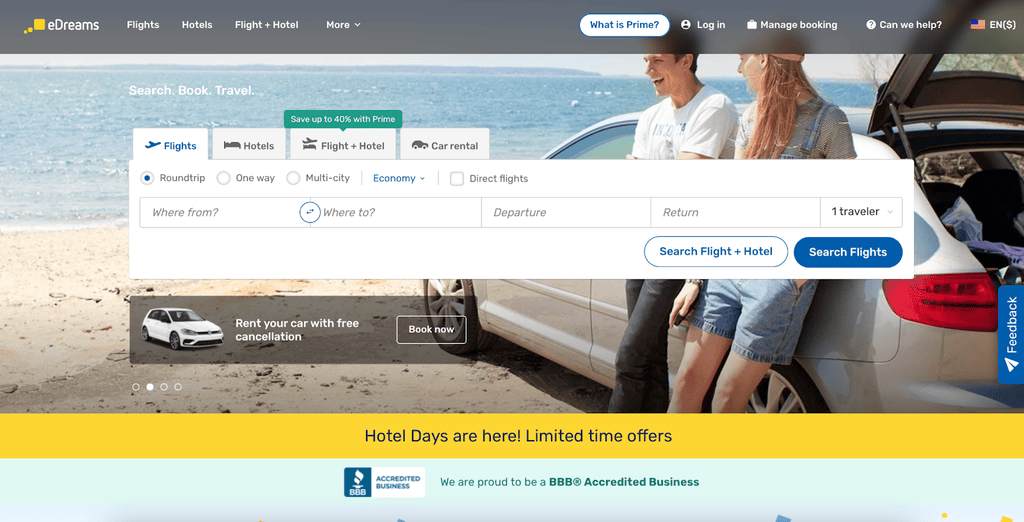Is Tolls by Mail a Scam?
Laura Martisiute
Reading time: 5 minutes

Table of Contents
If you received a Tolls by Mail invoice, you need to know whether it’s safe to pay it. Is Tolls by Mail a scam?
Below, we explain whether Tolls by Mail is a scam and discuss some steps you can take to improve your safety before you pay a Tolls by Mail invoice.
What is Tolls by Mail?
Tolls by Mail is the payment system used by the New York State Thruway Authority to bill drivers whose vehicles do not have an E‑ZPass tag.

When vehicles pass under a cashless tolling gantry, overhead cameras and sensors photograph the license plate and later mail an invoice to the registered vehicle owner.
Is Tolls by Mail a Scam?
No, Tolls by Mail is not a scam. It’s the official way to pay tolls when driving on New York cashless toll roads without an E‑ZPass tag.
Confusion over whether Tolls by Mail is a scam arises because scammers frequently impersonate the service.
Fraudulent texts or emails claiming unpaid tolls and demanding immediate payment or asking for personal data are common. The New York governor’s office and federal agencies emphasize that the Thruway Authority never requests sensitive information via text or email.
NYS Thruway Authority warns that Tolls by Mail messages always come from a specific short code, begin with “EZPNY”, use clear and professional language, and make no requests for sensitive information.
On the other hand, Tolls by Mail scam messages are often sent from international phone numbers or email addresses, request a reply with a “Y” to receive a link, and contain an unofficial website.

On online forums like Reddit, people have reported that scammers are getting increasingly ingenious, sending deceptive messages that direct users to pay their toll invoices to “tollbymailsny” instead of the legitimate “tollsbymailny.” The fraudulent version adds an extra “s,” making it easy to overlook.

One person said that the scam looks very convincing because the extra “s” in the URL could reasonably stand for something real, such as “Southern New York”, which fits the region where they had recently traveled.
However, they avoided being scammed because they follow a personal rule to never click links sent by text message, which is what protected them.
When a Tolls by Mail invoice is not a scam
In some cases, a Tolls by Mail invoice may not be a scam, even if you haven’t driven on a toll road recently. This is especially true if the notice arrives by mail, has your correct plate number and name, and directs you to the official Tolls by Mail website.
Two common causes for this are:
- The license plate was misread by the toll camera. Automated plate readers sometimes mistake a letter or number, and the bill gets sent to the wrong person.
- Someone is using a counterfeit or cloned license plate. Unfortunately, plate cloning is becoming more common. Someone may have duplicated your plate and put it on their own vehicle to avoid paying tolls.
If you suspect this has happened to you, go to the Tolls by Mail website and enter the toll reference without using the link printed on the notice. If no record appears, the notice is likely a scam.
If a record does appear, check the photo of the vehicle. If the make, model, or color doesn’t match your car, it’s probably a license plate misread.

Next, call Tolls by Mail and explain that the vehicle shown in the photo is not yours. They will request proof. Once they confirm that the vehicle does not match yours, they should dismiss the toll.
Don’t ignore the notice, as late fees may add up, and your DMV registration could be affected.
So, Should You Pay the Tolls by Mail Invoice?
Yes, you should pay a legitimate Tolls by Mail invoice. Tolls by Mail is the official billing system used by the New York State Thruway Authority for drivers without an E-ZPass.
If the notice you received is genuine, failing to pay it can result in late fees, collections, and even issues with renewing your registration.
However, because scams are common, you should verify that the invoice is real before paying.
How to Pay a Tolls by Mail Invoice Safely and Privately
- Never click links in texts or emails. Instead, type the Tolls by Mail URL into your browser yourself to check your account.
- Look closely at the URL. The real site ends in .com and has “tollsbymailny” exactly spelled. It also uses secure encryption (https:// with a lock icon). Scam websites often add small spelling changes, look visually similar but have no lock icon, and redirect you to a random payment portal.
- Confirm your vehicle and travel history. Before paying an invoice from Tolls by Mail, ask yourself if you actually drove on a New York toll road recently, does the date and location match your travels, and is the license plate number on the invoice correct. If anything doesn’t match, contact Tolls by Mail support directly (through the phone number listed on their official website).
- Never share personal or financial information over text or email. Tolls by Mail will never ask for your driver’s license number, bank login, or Social Security number. It will also never ask to reply directly to their text message. If a message asks you for any of these, it’s a scam.
- Consider getting an E-ZPass. If you frequently drive toll roads, E-ZPass is a more cost-effective option and reduces the risk of scam exposure, as you stop receiving toll invoices altogether.
Our privacy advisors:
- Continuously find and remove your sensitive data online
- Stop companies from selling your data – all year long
- Have removed 35M+ records
of personal data from the web
Save 10% on any individual and
family privacy plan
with code: BLOG10
news?
Don’t have the time?
DeleteMe is our premium privacy service that removes you from more than 750 data brokers like Whitepages, Spokeo, BeenVerified, plus many more.
Save 10% on DeleteMe when you use the code BLOG10.















